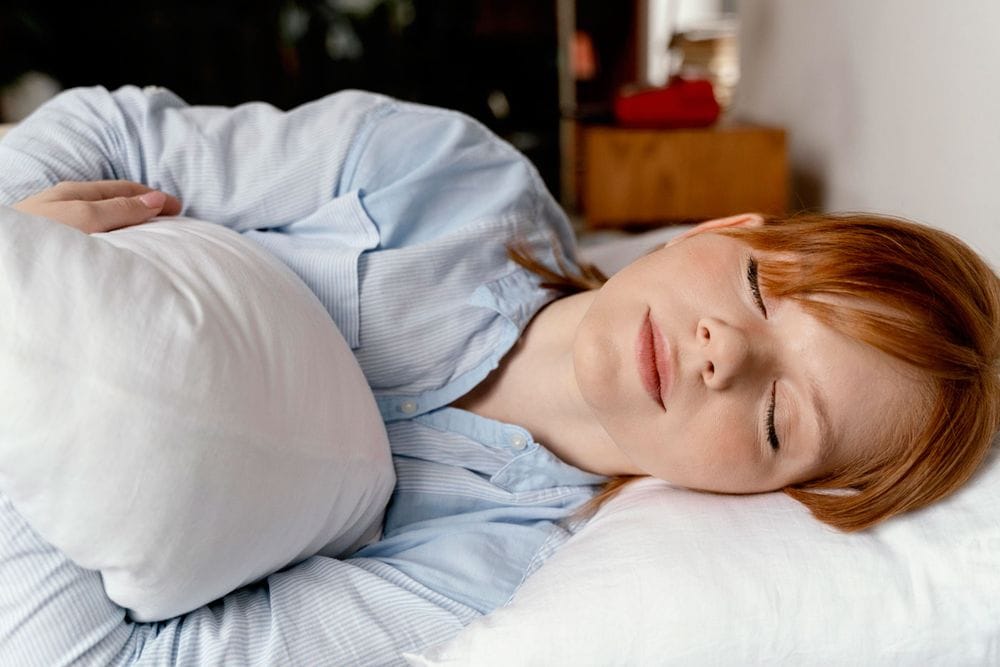Pregnancy is an exciting and life-changing experience, but it also comes with its fair share of challenges, including difficulty sleeping. As the body changes and grows to accommodate the growing fetus, finding a comfortable sleeping position can be a real struggle. However, it's important to prioritize good sleeping positions during pregnancy to support both the mother's and the baby's health. In this article, we will explore the best sleeping positions for pregnant women.
Why Sleeping Positions Matter During Pregnancy?
During pregnancy, the body undergoes numerous changes, including weight gain and an expanding uterus. These changes can make it difficult to find a comfortable sleeping position, and poor sleeping positions can lead to a variety of health concerns. For example, sleeping on the back during pregnancy can lead to back pain, digestive issues, and even a decrease in blood flow to the baby. Additionally, poor sleeping positions can exacerbate existing pregnancy-related conditions such as heartburn, snoring, and sleep apnea.
- Sleeping Position #1: Side Sleeping

One of the best sleeping positions during pregnancy is side sleeping. Sleeping on the left side is generally considered better than sleeping on the right-side during pregnancy because it improves blood flow and nutrient delivery to the placenta, which benefits both the mother and the developing baby. When a pregnant woman sleeps on her left side, the weight of the baby and uterus are not pressing on the large veins in the abdomen, which can reduce the risk of swelling and other complications. Additionally, sleeping on the left side can help alleviate back pain, reduce snoring, and improve digestion. However, if sleeping on the left side causes discomfort, sleeping on the right side is a good alternative. To get comfortable while side sleeping, try placing a pillow between your legs to help align your hips and spine. You can also use a pregnancy pillow to support your belly and back.
- Sleeping Position #2: Semi-Prone Sleeping
Semi-prone sleeping involves sleeping on your stomach with one leg bent and the other straight. This position can be comfortable for some pregnant women, especially during the early stages of pregnancy. However, it's important to be cautious with semi-prone sleeping, as it can put pressure on the growing uterus and compress the vena cava, the large vein that returns blood from the lower body to the heart. If you choose to try semi-prone sleeping, it's important to monitor your comfort level and speak to your healthcare provider if you experience any discomfort or adverse symptoms.
- Sleeping Position #3: Sleeping with Pillows

Pillows can be a pregnant woman's best friend when it comes to sleeping comfortably. A pillow placed between the knees can help to align the hips and reduce pressure on the lower back. A pregnancy pillow can provide additional support for the belly and back, making it easier to find a comfortable sleeping position. However, it's important to be cautious when using pillows to sleep, as they can cause you to overheat or make it difficult to move during the night.
- Sleeping Position #4: Avoiding Back Sleeping

Sleeping on your back during pregnancy is not recommended, as it can cause a variety of health concerns. This position can lead to back pain, digestive issues, and decreased blood flow to the baby. It's best to avoid back sleeping altogether, especially in the later stages of pregnancy. To prevent yourself from rolling onto your back during sleep, try placing a pillow behind you or wearing a pregnancy sleep bra.
Final Words
finding the right sleeping position during pregnancy is essential for both you and your baby's health and well-being. Sleeping on your side, avoiding sleeping on your back, and using pillows for support can all help pregnant women find a comfortable sleeping position. Incorporating other tips such as wearing comfortable clothing to bed, keeping the bedroom cool and dark, and relaxing before bedtime can also help you get a better night's sleep. Remember to talk to your doctor if you have any concerns about your sleep during pregnancy. With these tips, you can ensure a more comfortable and restful pregnancy.







